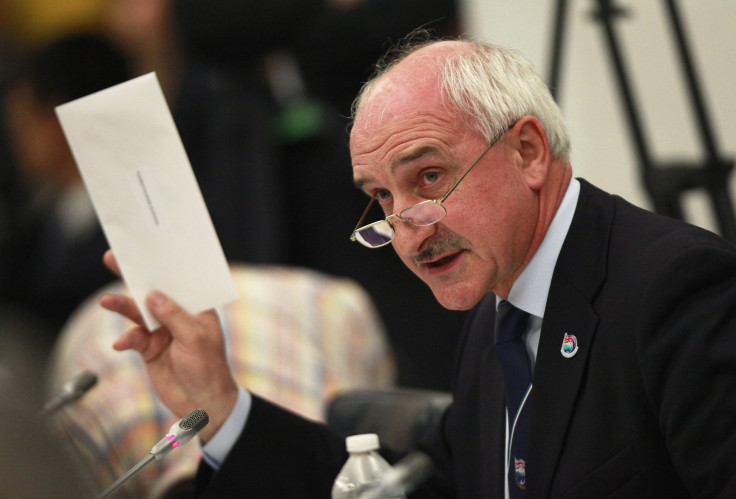Falkland Islands Delegation Wants US Support, Says Current Position Unclear

The head of a delegation of lawmakers from the Falkland Islands is in the U.S. as part of an multination tour of the Americas to build support for the islands’ sovereignty claims as a British Overseas Territory.
Mike Summers, a member of the Falklands’ Legislative Assembly, said Thursday that he was in the U.S. to meet with members of Congress, State Department officials and U.N. officers to present the results of a recent referendum that overwhelmingly affirmed the islanders’ wishes to remain a part of the United Kingdom in the face of competing claims from Argentina.
Argentina claims sovereignty over the islands, which it refers to as Las Malvinas, charging that they are a part of its territory that had been "colonized" by the British in the 19th century.
“Our families have been in permanent peaceful occupation of the Falklands for over 180 years now,” Summers said. “And the Falklands were populated like many other parts of the New World by immigrants freely coming and going.”
“As a people, we are culturally, linguistically and historically completely different from Latin America,” he added. “We as a people have the right to determine how we live our lives and how we’re governed. And the Argentine claim to some kind of succession to the Spanish Empire in the 1700s before Argentina existed doesn’t bear examination.”
The referendum had a 92-percent turnout, with 1,513 votes out of 1,518 cast in favor of retaining the Falklands’ current political status as a UK territory.
“We had anticipated a result -- perhaps not as overwhelming as that -- but certainly a ‘yes’ vote,” Summers, adding that the delegations’ purpose was to “seek support for what is an act of democracy and an act of self-determination by the people of the Falkland Islands.”
U.S. State Department spokeswoman Victoria Nuland responded to the Falklands referendum earlier this week, stating that Washington continues to acknowledge the “de facto UK administration of the islands” but takes “no position on sovereignty claims.”
“I have seen a slightly garbled report of that, and we will be seeking to clarify exactly what the U.S. position is when we meet the State Department in due course,” Summers said.
“But we have also met this week with a number of congressmen, who have a slightly different view from the administration and who feel that the right of the people of the Falklands to self-determination should be taken seriously into account,” he added.
Summers declined to identify who those members of Congress are before expected meetings in Washington but said that a resolution in support of the referendum would come out with their signatures in the next few days.
Republican Rep. Jim Sensenbrenner of Wisconsin’s Fifth District has openly expressed support in the past for the Falkland Islands government’s sovereignty claims. Sensenbrenner’s office reported he was in transit from the capital to Wisconsin and would not be available for comment until next week, though he has not detracted from his previous statements in the past year.
“The Obama administration’s official position is that the United Kingdom and Argentina should negotiate the sovereignty of the Falklands,” Sensenbrenner wrote in a column for Mercopress last March.
“This misguided policy misses the point of the Falklanders’ right to self-determination, a right that the British government has been determined to protect until Falklanders decide otherwise,” he added.
Summers reiterated the Falkland Islands government’s position that the issue is not a bilateral one between Argentina and the UK, but one that should consider the will of the Falkland Islanders as its own political entity.
“Simply to call for negotiations between the United Kingdom and Argentina is in effect to ask for negotiation of our sovereign rights over the heads of Falkland Islanders, and that isn’t acceptable,” Summers said.
Summers added that he would like to see the U.N. issue a statement recognizing the results of the referendum and for the organization to encourage its member states to do the same.
© Copyright IBTimes 2024. All rights reserved.





















